Geek is the New Black: Benefits of Electronic Gaming in the Library, a defense
 Recently, I was asked about gaming in libraries. Specifically online gaming, but much of this same information can be applied to video gaming in libraries as well. Ironically, CNN recently ran an article RE video gaming in libraries, which came across as largely pro. In our 21st century world, I think that being pro gaming is the way to be. Yes, even for libraries.
Recently, I was asked about gaming in libraries. Specifically online gaming, but much of this same information can be applied to video gaming in libraries as well. Ironically, CNN recently ran an article RE video gaming in libraries, which came across as largely pro. In our 21st century world, I think that being pro gaming is the way to be. Yes, even for libraries.
In a previous position, I ran an after school program designed to meet the needs of the teens in that community. It was hugely popular, averaging 50 to 70 teens every Tuesday for about the entire 10 years that I was there, and video gaming was a huge part of that. At the same time, there would be teens reading, teens talking, and, yes, teens sitting across from each other at a table texting each other. Because we are living in a 21st century world and our teens are PLUGGED IN. We could certainly make the argument that they should be plugged in less, but as a library we do a disservice if we ignore this aspect of who we serve because of our personal beliefs. We are not their parents, we are their librarians and our job is to help them gain access to the resources they need to navigate 21st century information. Plus, you can always balance your plugged in programming with unplugged programming. The trick is not to ignore one in favor of the other.
In a time where more and more information is moving to a technology based environment, an increasing number of kids are learning that they suffer from what is known as the “Technology Gap” or the “Digital Divide”. Children and teens growing up in low income homes do not have the same access to technology as their more affluent peers and they suffer from this lack of access. The topic is of such high educational importance that the PEW project often does research on the Digital Divide (see it here) and many cities discuss ways to bring broadband access to the state, as well as free wireless access.
ADVERTISEMENT
ADVERTISEMENT
Computer Literacy
Literacy in today’s age goes beyond just the basic ability to read and write. There is, in fact, a new type of literacy that is termed computer or digital literacy. The ability to navigate and adapt to current and unfolding technologies is a basic life skill for our emerging youth. Gaming helps them adopt basic tech skills in a fun way that engages them. In fact, if you teach a beginning Internet class one of the exercises often given to participants is to play Solitaire to get better at manipulating the mouse. Just as young children learn a variety of basic skills through random, unstructured play, so can our youth learn a variety of computer literacy skills through online play.
Multiplatform Storytelling (Basic Literacy Skills)
A large amount of online gaming involves basic storytelling. Heroes go on a quest, basic tasks are given, etc. Along the way, participants have to read prompts, engage in the story, and help determine the story’s outcome. In many ways, video gaming is simply another form of storytelling, albeit a more active one. In fact, it is an online “Choose Your Own Adventure” story that you, the participant, is helping to write.
Take, for example, the concept of transmedia – Transmedia storytelling (also known as transmedia narrative or multi platform storytelling) is the technique of telling a single story or story experience across multiple platforms and formats using current digital technologies. It is not to be confused with traditional cross-platform media franchises,[1] sequels or adaptations. (Don’t hate on me, but this is the Wikipedia definition.)
Many of the items we purchase in our collection now include a transmedia approach. This means that there are a variety of online activities, including games, that young readers are invited to jump online and do to enhance the story. Examples of this include the BZRK series by Michael Grant and The 39 Clues by multiple authors. The very items in our collections are instructing our readers to jump online and engage in the story in a more hands on way. A customer would be pretty unsatisfied to go to a store and buy a printer but not be able to buy their printer paper there, so it would also be pretty annoying for our patrons to check out and read a book that directed them to go online for additional experiences and be told the very library they checked the book out from doesn’t permit that.
21st Century Education
21st century has an emphasis on STEM skills (science, technology, engineering and math). This means that young students need to be adept and knowledgeable at interacting with technology and be continually aware of the rapidly changing landscape of the technology world. In addition, these new skills require a different type of learning, of information access and processing skills, and these skills can arguably only be acquired through frequent interaction with the online world.
Coding (see Minecraft)
One of the primary 21st century skills that STEM education emphasizes is coding. It is believed that all students today need to learn some basic coding. Minecraft is a game that was designed to help teach kids coding in a fun, game like environment. Minecraft is just one example of this type of gaming, but it is currently the most popular. In fact, many libraries now have Minecraft parties as a regularly occurring program because of the social and educational benefits.
See also, Why Everyone Should Learn to Code: http://www.slate.com/blogs/future_tense/2013/03/29/codecademy_hacker_school_why_everyone_should_learn_to_code.html
See also these References from YALSA: http://yalsa.ala.org/blog/2013/04/04/connect-create-collaboratecraft-a-teen-tech-week-post-mortem-minecraft-in-the-library/, http://www.questia.com/library/1G1-317588244/minecraft-programs-in-the-library-if-you-build-it
Lateral Thinking, Creativity, Innovation (STEM Education)
Video gaming puts kids and teens in a variety of scenarios where they have to think creatively, problem solve, innovate, lateral thinking and more. These are all 12st century education goals. They are, in fact, some of the same benefits that we get from reading, but gaming addresses this in a 21st century way and it does so while engaging in a different type of learning environment/strategy. There is more than one way to learn, and each way is more effective for different people; by allowing access to gaming, we widen our education net to meet the needs of those with learning disabilities of various types and allowing them to engage in the educational format that works best for them, as opposed to more traditional formats.
ADVERTISEMENT
ADVERTISEMENT
Lateral Thinking Definition: Lateral thinking is solving problems through an indirect and creative approach, using reasoning that is not immediately obvious and involving ideas that may not be obtainable by using only traditional step-by-step logic. (Edward de Bono)
Physical Benefits That Impact Learning and Basic Literacy
Video gaming increases some basic skills such as hand/eye coordination. These are all skills that are also important to the basic ability to read. Thus, gaming in the library reinforces many skills that help our youth become better readers and information processors. That seems to fall under our basic mission. For another example of the physical benefits of electronic gaming, see Video Games Promote Cognitive Flexibility.
Patron (Customer) Satisfaction and Retention
Part of remaining vital and relevant not only today but in the future is to communicate to your patrons that you value them and that you have the resources they need to be successful in their formal and informal education. You cannot alienate a generation of library users by denying them access to a key component of their technology needs and expect them to later come back and find the library both viable and relevant. By eliminating gaming in the library we will communicate to today’s youth that we do not have what they need and want, that we are not a relevant community resource, and we will be hard pressed to convince them otherwise at some later date.
Supporting General Education
A basic part of much classroom education today is supplemented by online games. In fact, there are entire curriculums such as Study Island that students are assigned and are asked to access outside of the classroom. These activities involve a variety of math, language and science based games that reinforce things discussed in the classroom. My tween daughter is instructed by her teacher to log in and participate in a group of games called Study Island, and it tracks her progress. Her teacher sends me emails reminding me that my daughter is supposed to do this. We are lucky, we have a basic laptop and Wifi access at home, but not all students do, which is where the public library comes in.
New Days, New Ways. Different is Not Always Bad, It’s Just Different
Recently, when asked to speak at a staff training event, I was talking about teens and reading when a hand went up in the air: “But teens don’t really read anymore”, this staff member said. The truth is, teens do read. Some of them, many of them, even still read traditional books. But as our world changes, so must our ideas of how we define reading. You just sat here and read this blog post, you were reading. Not a book, but still reading. Teens read, and a lot of them are doing it in new ways provided by technology – including inside of the games that they play. In order for libraries to remain relevant, we have to understand the patrons that we serve and be able to meet their needs. We have to adapt. This means that we have to acknowledge that teens may be reading in different ways, but that they are still reading. And teens may be learning in different ways, but they are still learning. The question is, do we want to continue to be a part of their education? If the answer is yes, then we must find ways to incorporate electronic gaming in libraries.
Additional Thoughts and Resources RE Gaming and Education:
20 Benefits of Video Games: http://www.trendhunter.com/course/gaming-speech
The Educational Benefits of Video Games: http://sheu.org.uk/sites/sheu.org.uk/files/imagepicker/1/eh203mg.pdf
Hidden Benefits of Video Games: http://www.drcherylolson.com/hidden-benefits-of-videogames/
Video Games Help Reading in Children With Dyslexia: http://www.bbc.co.uk/news/health-21619592
New Study Finds that Gaming Helps Children Learn Ethical Decision Making: http://www.bbc.co.uk/news/health-21619592
Study Finds Playing Video Games Helps You Process Images Faster: http://www.geekosystem.com/visual-stimulus-gamers/
The Benefits of Video Games: http://abcnews.go.com/blogs/technology/2011/12/the-benefits-of-video-games/
When Gaming is Good for You: http://online.wsj.com/article/SB10001424052970203458604577263273943183932.html
The Brain 101: http://www.positscience.com/brain-resources/brain-facts-myths/brain-101
Video Games Promote Cognitive Flexibility: http://www.huffingtonpost.com/2013/08/24/video-games-brain-starcraft-cognitive-flexibility_n_3790610.html
Additional Thoughts and Resources RE Gaming in Libraries:
The Librarian’s Guide to Gaming: http://librarygamingtoolkit.org/
Video Games and Libraries are a Good Mix: http://venturebeat.com/2013/01/18/video-games-and-libraries-are-a-good-mix-say-librarians/
Video Gaming in Libraries 101: http://www.slideshare.net/JustinTheLibrarian/video-gaming-inlibraries101
At Libraries Across America, It’s Game On: http://www.npr.org/2013/08/11/209584333/at-libraries-across-america-its-game-on
Beck, John C and Mitchell Wade. Got Game: How the Gamer Generation is Reshaping Business Forever. Harvard Business School Press, 2004.
Gee, James Paul. Good Video Games + Good Learning : Collected Essays on Video Games, Learning, and Literacy. P. Lang, c2007.
Gee, James Paul. What Video Games Have to Teach Us About Learning and Literacy. Palgrave McMillan, 2003.
Johnson, Steven. Everything Bad is Good For You: How Today’s Pop Culture is Making Us Smarter. Riverhead, 2005.
Nicholson, Scott. Everyone Plays at the Library: Creating Great Gaming Experiences for All Ages. Information Today, 2010.
Neiburger, Eli. Gamers … in the Library?! : The Why, What, and How of Videogame Tournaments for All Ages. American Library Association, 2007.
Prensky, Marc. Don’t Bother Me Mom–I’m Learning. Paragon House, 2006.
Salen, Katie. The Ecology of Games : Connecting Youth, Games, and Learning. MIT Press, 2008. Forthcoming
Selfe, Cynthia L. and Gail E. Hawisher. Gaming Lives in the Twenty-First Century : Literate Connections. Palgrave, 2007.
Vorderer, Peter and Jennings Bryant, eds. Playing Video Games : Motives, Responses, and Consequences. Lawrence Erlbaum Associates, 2006.
“A Revolution in Library Service: Gaming is More Than Just a Lure into the Library” by Kelly Czarnecki. School Library Journal, May 2007, p34.
“All Thumbs Isn’t a Bad Thing: Video Game Programs @ your library” by Beth Saxton. Young Adult Library Services, Winter 2007.
“From Platforms to Books? I’m Game” by Rollie Welch. Young Adult Library Services, Winter 2008.
“Gaming and Libraries: Intersection of Services” by Jenny Levine Library Technology Reports Sep/Oct 2006, vol. 42., n. 5
“Gaming Advocacy: New Ways Librarians Can Support Learning and Literacy” by Kit Ward-Crixell. School Library Journal, September 2007.
“Why Gaming?” Library Technology Reports, September/October 2006, p10.
Additional Resources and Thoughts RE The Digital Divide:
7 Myths of the Digital Divide: http://thesocietypages.org/cyborgology/2013/04/26/7-myths-of-the-digital-divide/
The Digital Divide is Still Leaving Americans Behind: http://mashable.com/2013/08/18/digital-divide/?utm_cid=mash-prod-email-topstories
The Digital Divide and Its Impact on Academic Performance: http://net.educause.edu/ir/library/pdf/WRC08034.pdf
Digital Divide: Bridging the Gap: http://www.broward.k12.fl.us/digitaldivide/
Education World: Caught in the Digital Divide: http://www.educationworld.com/a_tech/tech041.shtml
Filed under: gaming, gaming in libraries, Geek is the New Black, Technology
About Karen Jensen, MLS
Karen Jensen has been a Teen Services Librarian for almost 30 years. She created TLT in 2011 and is the co-editor of The Whole Library Handbook: Teen Services with Heather Booth (ALA Editions, 2014).
ADVERTISEMENT
ADVERTISEMENT
SLJ Blog Network
Name That LEGO Book Cover! (#53)
Cover Reveal and Q&A: The One and Only Googoosh with Azadeh Westergaard
K is in Trouble | Review
Fighting Public School Book Bans with the Civil Rights Act
ADVERTISEMENT




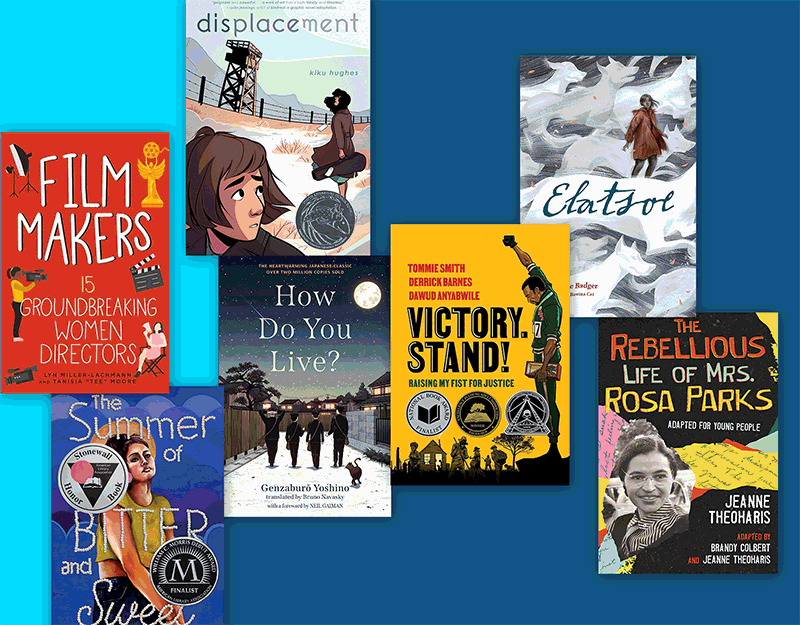
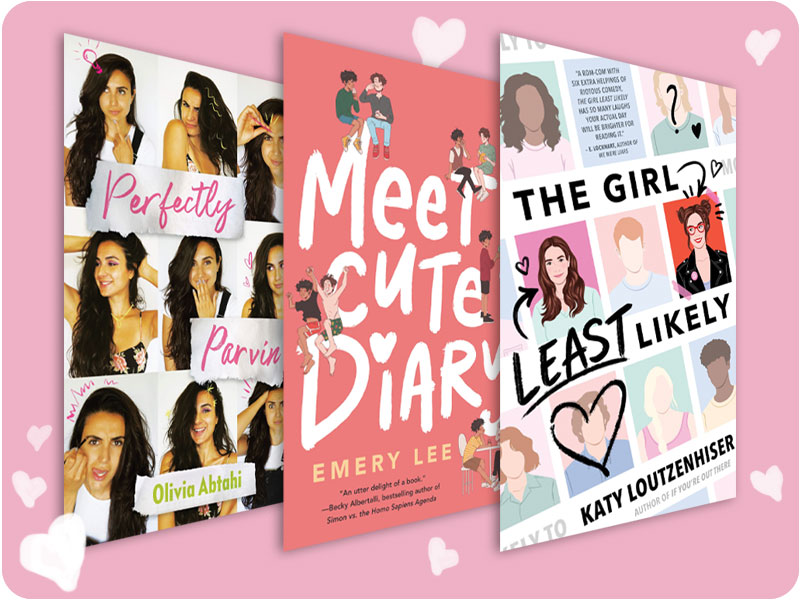
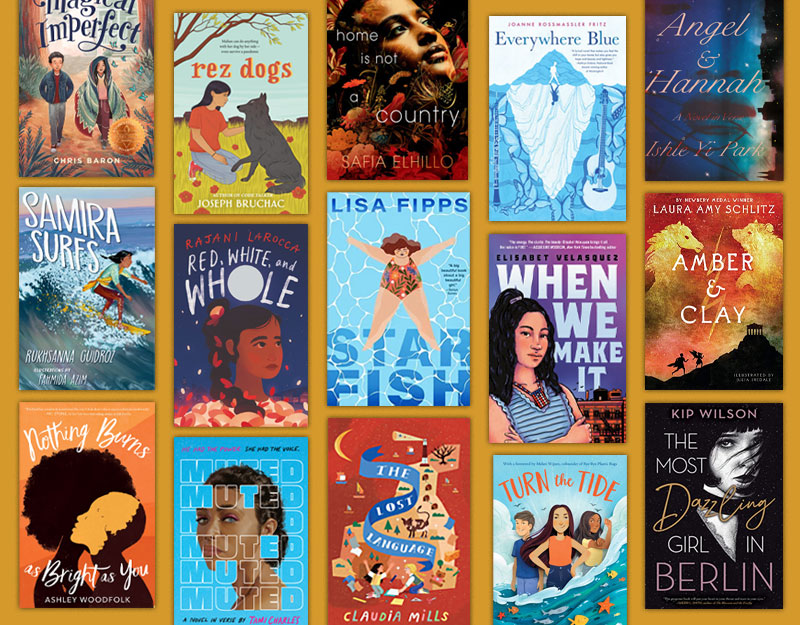
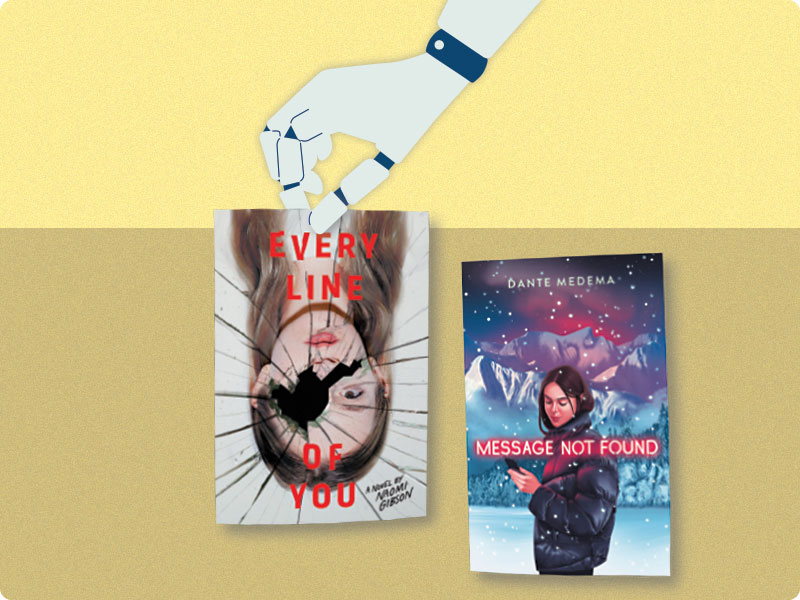
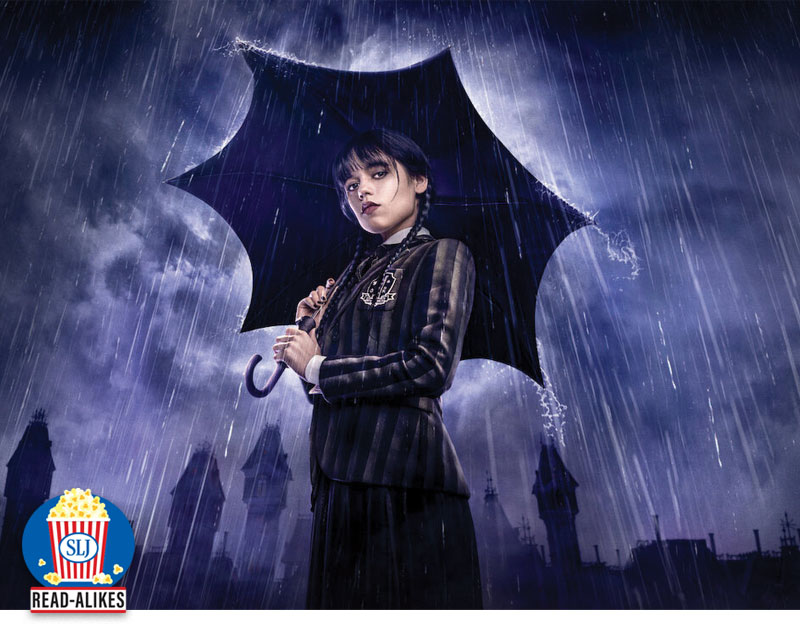
Many online Games help kids learn a lot about subjects like science and history. In fact, they serve as very useful additions to their school books.
Interesting read, I shared this in my FB group.